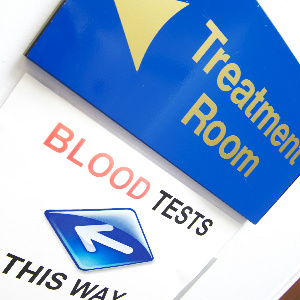GP practices face premises costs hike under plans revealed by PropCo

GP practices face a massive hike in service costs under new plans revealed by NHS Property Services to ensure that ‘all costs are recovered from tenants’ rather than CCGs.
The company that runs former PCT-owned property said that it was currently unable to recover approximately 40% of its costs from its tenants and that it would work to ensure that this funding ‘shortfall’ did not have to be paid by CCGs.
NHS Property Services – otherwise known as PropCo – said that it would be sending CCGs new information this year to help them ‘better understand the costs’ they are bearing and ensure all costs were recovered from tenants in future.
The organisation’s plans for 2014/15 were summarised in a report called ‘Quality Healthcare Environments – a guide for customers and tenants’ published in March – which also said that ‘more than 40% of leases inherited by the company were undocumented’.
NHS Property Services states that commissioners will continue to subsidise some GPs’ bills, but medical accountants fear that some GPs’ finances could be severely hit.
The document from PropCo says: ‘NHS Property Services will work with those tenants traditionally subsidised by commissioners to ensure that in future all costs are recovered from tenants.’
‘Where commissioner subsidies remain, NHS Property Services will identify these on a property by property basis and ensure that the appropriate commissioner is identified who should pay these costs. In other words CCGs will be billed based on actual costs rather than NHS England’s historic allocations process.’
Related articles
In full: NHS Property Services’ guide for customers and tenants
Keith Taylor, head of medical services for BW Medical Accountants in Newcastle upon Tyne, said the plans meant that some GPs will be ‘saddled with higher rental costs’.
He said: ‘This change will impact on profitability without a doubt. GPs are being asked generally to put on more and more services, but they are not being provided with the funding.’
Mr Taylor added that many GP rental agreements were established in an ad hoc way, sometimes without any proper lease agreements, and that he already has one GP client who faces an uncertain future after being hit with an additional £40,000 bill for utilities.
Glyn Rawlings, a medical sector specialist for Rowleys medical accountants in Leicester, agreed the impact of the change would be widespread amongst formerly PCT-owned GP practices.
He said: ‘If now these costs are going to be passed directly onto GP practices then undoubtedly this will put huge additional financial pressure on them at a time of practice income falling and pressure on cash flow. This could cause all sorts of problems, particularly where practices are in older health centres where there has never been a lease in place and also where historically costs are charged to the PCT for a group of properties where it is unclear how these costs are apportioned.’
A spokesperson for NHS Property Services said: ‘For 2014/15 we will provide commissioners with figures based on individual buildings. This will help the NHS as a whole better understand the costs it is bearing and support shared working towards achievement of savings and service improvement. We also expect to reduce reliance on shortfall fundings as more of our tenants move onto standard lease and occupancy documentation this year and next – one of the many benefits of the NHS using one specialist property company instead of 161 PCTs and strategic health authorities all operating differently – as happened before.’
Pulse July survey
Take our July 2025 survey to potentially win £1.000 worth of tokens











